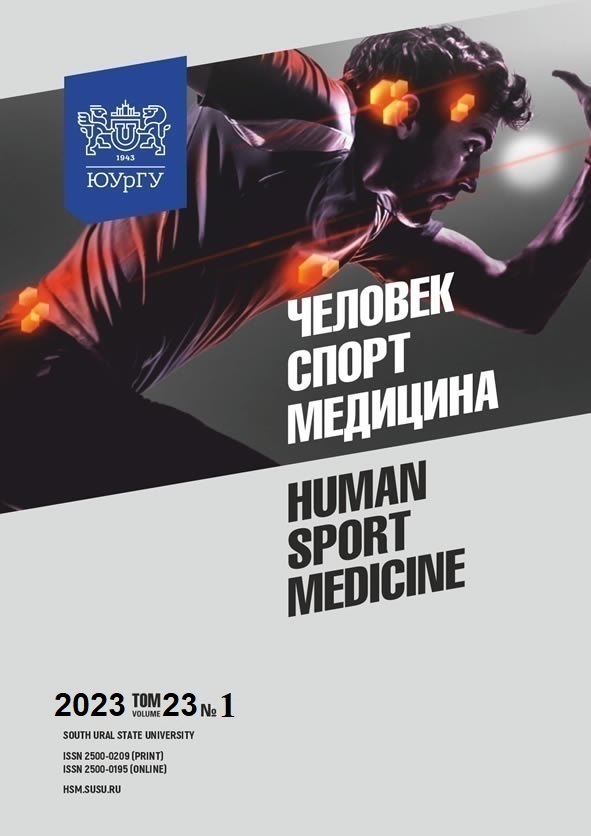FUNCTIONAL, PHYSICAL, AND MOTOR DEVELOPMENT OF 6–7- AND 11–12-YEAR-OLD BOYS WITH DIFFERENT MOTOR FITNESS UNDER INTENSIVE USE OF DIGITAL TECHNOLOGIES
Abstract
Aim. The paper aims to identify the features of functional, physical, and motor development in 6–7- and 11–12-year-old boys with different motor fitness under the intensive use of digital technologies. Materials and methods. A set of morphological and functional parameters was evaluated along with muscle performance and motor fitness. The daily use of digital technologies was assessed through a survey and time tracking. Sleep was evaluated via a special diary. The total duration of the use of digital technologies was measured by “screen time”. The level of digitalization was studied based on the modified index of digitalization (Imod). Results. Boys with high motor performance under intensive daily use of digital technologies are characterized by more balanced functional, physical, and motor development in comparison with peers with lower motor fitness. The features of morphological and functional development were identified in children with a high level of general and strength endurance, speed and speed-strength qualities under the intensive use of digital technologies. Conclusion. A targeted development of motor abilities in physical education lessons under the intensive use of digitalization will maintain optimal functional status and physical performance and increase children’s resistance to information overload.
References
References on translit
Copyright (c) 2023 Human. Sport. Medicine

This work is licensed under a Creative Commons Attribution-NonCommercial-NoDerivatives 4.0 International License.















